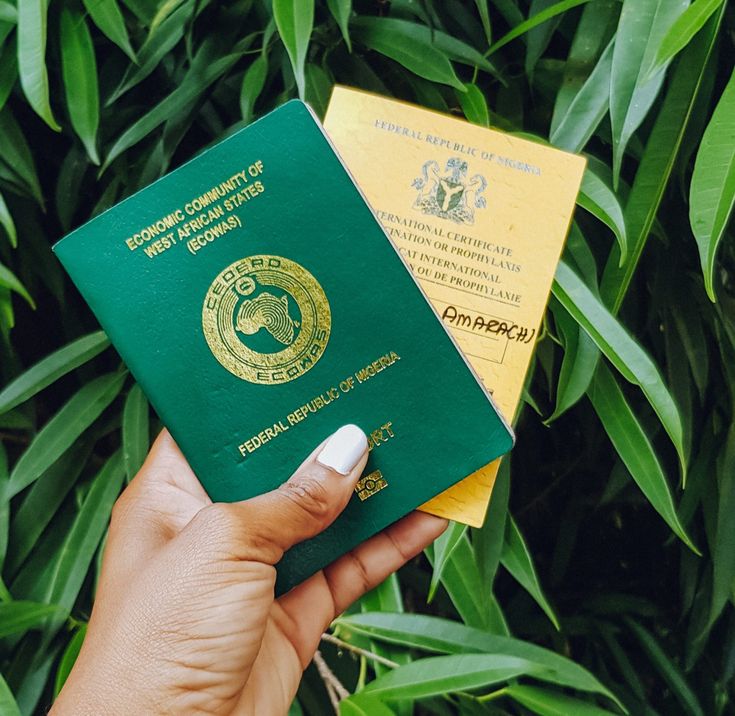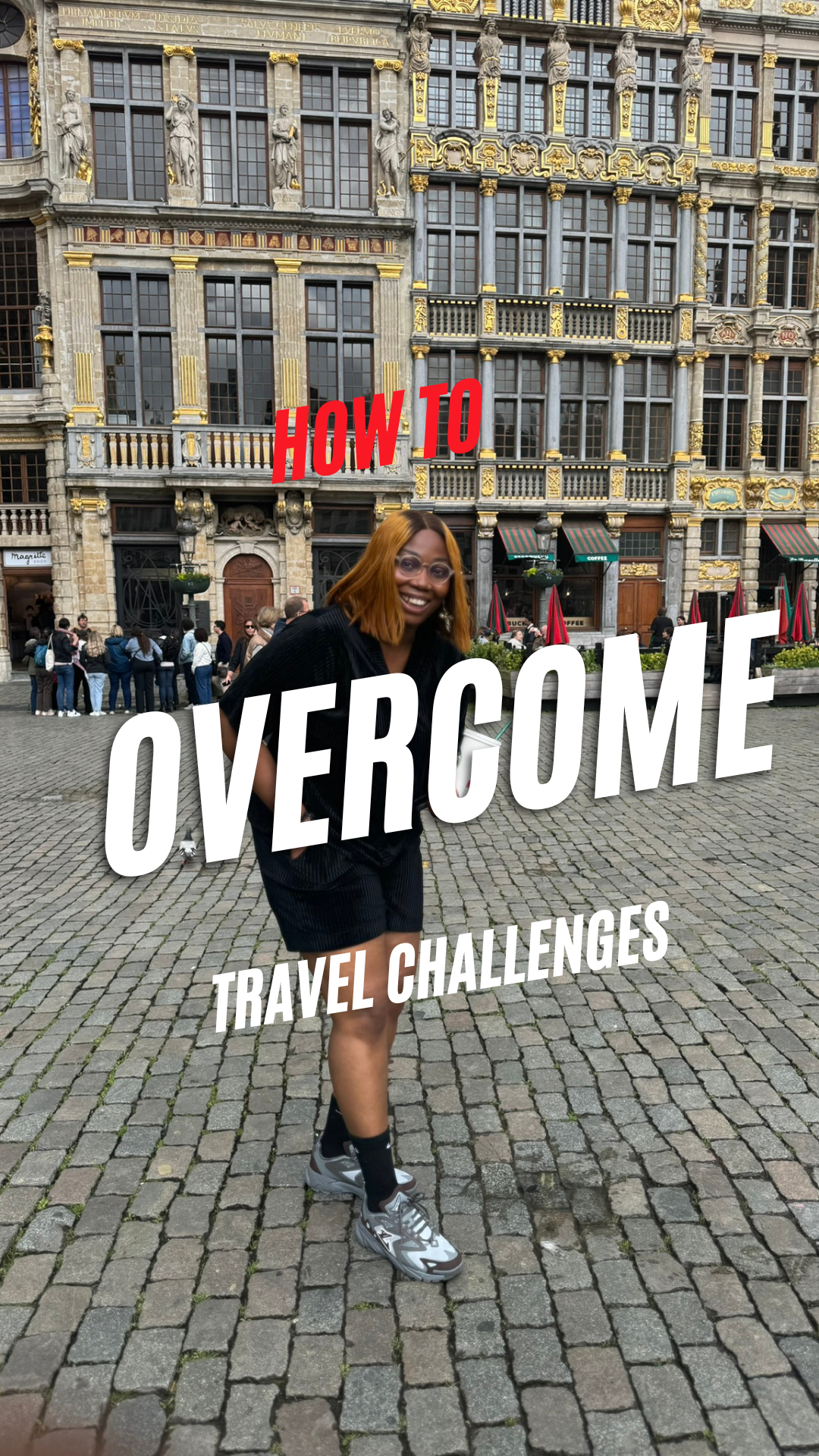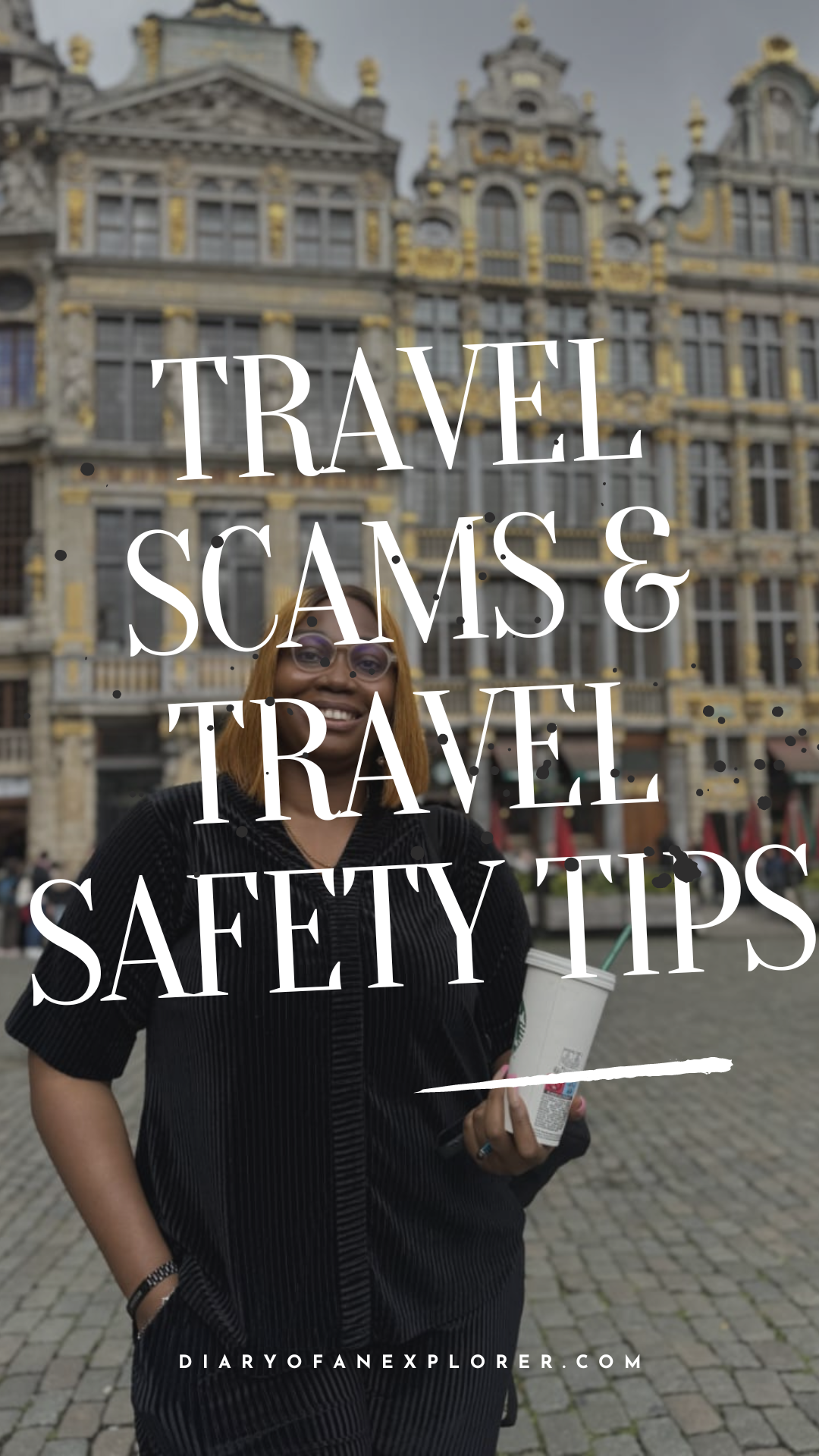Taking an international trip for the first time can be nerve-wracking and thrilling at the same time. As a travel explorer, I have enough experience globetrotting but still learn new tips and tricks when travelling. Travelling somewhere completely new can be overwhelming, especially if it's your first time. It takes a while to become a pro traveller, but the simple tips in this article will guide you as a beginner.
BEGINNERS GUIDE TO INTERNATIONAL TRAVEL
1. Prepare your travel documents
The most important and necessary thing to have when travelling is your travel documents. Not having your passport or travel visa is something that should not occur, as it will cause unnecessary stress and delay your travel plans. A yellow fever vaccination card is a must-have document and you should check for any other requirements that need to be included in your travel documents.

PASSPORT
I always advise people to have a passport with 6 to 10 years of validity and make sure you have more than 6 months of validity on your passport, as some countries might deny you entry and your visa may be denied if there aren't enough free pages on your passport.
Do not let it be an oversight because you have a few years on your passport and forget to renew it when it is due. Before travelling internationally, you need to make sure to have a valid international passport to avoid potential delays on your trip.
VISA
It is important to check in advance if the destination you're travelling to requires a visa before entry or if you’ll be granted a visa on arrival. Research the specifications for your country to be sure if you need to apply for a visa in advance. Also, do research on the type of visa you’ll need depending on your purpose for travelling. It could be a study, work, tourist, transit visa, and many more.
It is necessary to follow the rules applied to your visa and have important documents attached to it. If you show up without the necessary visa, you will be rejected. However, depending on the destination, rules differ so thoroughly research entry requirements for the country.
You’ll need to check in advance whether you need a visa, which is a document issued by the destination country granting you entry. It could either be an e-visa or a visa sticker on your international passport. Showing up to your flight without the necessary visa may lead to you being rejected, especially if you cannot apply for one on arrival. If you intend on transiting from one country to another, you will need a transit visa, as your visa might not guarantee your entry into another country. Do enough research and be prepared to answer any questions the immigration officer at the port of entry might ask.
2. Research your destination
You have decided on the location to travel to and are ready to book your flight but hold your horses. Consider investing some time in researching your destination What you have in mind about the country might not be accurate so you need to be aware of the security state of the destination. Determine if the destination is safe as a solo traveller, and research certain laws of the destination that might put you in peril.
Ignorance aside, it is practical to anticipate the differences in laws, aside from the differences in language and culture. Did you know speaking loudly in public is illegal in Dubai? Research what is legal and illegal and read as many travel tips as you can about the destination. Some foreign countries' laws might seem strange to you because of differences in culture so being aware of them will save you from getting into trouble.

3. Address money matters
You simply can’t travel without considering your money and bank matters when you're travelling. It is important to notify your bank about your trip and depending on the location you are travelling to, you may not have access to an ATM or your ATM card server might not be accepted. To be on the safe side, if the destination runs its economies largely on cash, carry enough cash to cover your expenses. In some European countries, it is required to have some amount of cash at hand at the port of entry but you must not have more than ten thousand dollars or euros in cash as it will be taken as money laundering.
I always advise people to create a dollar account if they don’t already have one for their personal travel allowance, which is very important. You also need to be aware of the living expenses of the destination you’re visiting to create an effective budget.
4. Compare transportation & accommodation options
If you will be out and about during your trip, research the most effective mode of transportation. Buses and subway systems are cost-efficient and eco-friendly modes of transportation and you get to do some sightseeing in the area and possibly chat with the locals. Depending on how long you stay in that location, I’d advise you to buy monthly or weekly metro cards for public transportation.
You could also choose the option of using rides like Uber or Bolt if it fits your preferences and budget. Useful apps like Google Maps or other suitable applications will come in handy on your phone for easy navigation when exploring the destination.
For your accommodation, you can select from several good options, like hotels, guesthouses, hostels, and Airbnb. If you want to go for a cheaper option, you can simply cancel the hotel off your list and focus on the others. Do your research on hostels that offer nice amenities and fit your budget. If you will be staying in one place for a lengthy period, I advise you to explore places that will offer you a discount or a long-term rental apartment, and always make sure to book your accommodation before boarding your flight.

5. Avoid travel fatigue
I am no stranger to travelling, but every time I embark on a trip, I still get that giddy excitement and am compelled to go all out with activities as soon as I land. I soon learned it wasn’t the best so do take your time after booking your first international trip.
The last thing you want on your first trip abroad is to be overcome with travel fatigue. Give yourself time to overcome the jet lag, especially if it is a long-haul flight, before starting any activities. If you have travel or motion sickness, please come prepared.
6. Prioritise your health & safety
You can never be too careful, especially in an unfamiliar location. The possibilities of things that could go wrong should not be at the forefront of your mind but you need to be aware of your surroundings as you're in an unfamiliar location so take the necessary precautions to stay safe as you enjoy your trip. Protect personal items by carrying a cross-body bag, sharing your location with close friends and family, or purchasing travel insurance, which is recommended for emergency situations. Also, make sure to have a first-aid kit at hand.
While you shouldn't preoccupy yourself with things that could go wrong on your trip, being aware of your surroundings and taking precautions to keep yourself safe will go a long way towards enjoying your new adventure.

7. Pack appropriately
Always make sure to pack appropriately, whether it’s a long or short trip. Research the weather status of the destination to determine the type of clothing to pack.
A few packing tips, like using packing cubes, will help you organise your things appropriately. You do not want to arrive at your destination with a disorganised suitcase, too many items, or too few items. Packing appropriately can simplify your trip. Packing necessary things like your skincare products, multi-purpose chargers, and other personal things should not stop you from packing light and enjoying your trip.
8. Read up on airport travel tips
A common thing between newbies and seasoned travellers has to be pre-departure anticipation and airport process anxiety. It is best to be in the loop of the do’s and don'ts in the airport, know the correct weight of what you’re allowed to carry and by all means avoid any implicating material. For your flight tickets, if you’re just visiting, you need to have a round-trip ticket and not a one-way ticket.
As a first-time traveller, the nerves will surely hit and make you a bit uneasy. Before heading to the international airport, do a last-minute check to make sure you’re not forgetting anything and you can read tips about the airport you’ll be arriving at.
9. Consider connectivity
Travelling abroad doesn’t mean you have to lose connections with family and friends. To avoid the feeling of homesickness and get the opportunity to call and share pictures of your adventure with your loved ones, you can do that by getting an international roaming sim or a local sim for your destination. You can also make sure of public WiFi and download a VPN on your mobile device to stay connected to some social media platforms that might be blocked in your location.
Cheers to a lifetime experience!
This compiled list is a great guide for a beginner's international travel to enhance your experience and avoid any tedious preparation. Now that you are ready to embark on your international travel, remember to get some packing cubes, purchase travel insurance, and always plan ahead. It is important to prioritise quality over quantity as you explore your destination so do not tire yourself out needlessly and enjoy a blissful experience.


